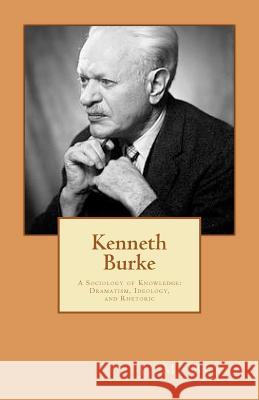Kenneth Burke: A Sociology of Knowledge: Dramatism, Ideology, and Rhetoric » książka
Kenneth Burke: A Sociology of Knowledge: Dramatism, Ideology, and Rhetoric
ISBN-13: 9781470130008 / Angielski / Miękka / 2012 / 102 str.
The American philosopher and literary critic Kenneth Burke was an "ideologist" (although he never called himself this, and added to that, he spent most of his life avoiding the Marxist term of ideology to describe human "systems" of ideas). Burke instead used the terms "orientation," "rationalization," "perspective," "critical perspective," "way of life," "critical mind-frame," "Weltanschauung," and "gestalt" to describe basically the main idea behind ideology: "a system of ideas, aiming at social or political action." The first definition of ideology that Burke lists in A Rhetoric of Motives (his only book to mention the term ideology directly) is "the study, development, criticism of ideas," which is exactly what Burke did for his entire philosophical life. Thus one could argue that the preeminent idea at the "center" of Burke's thought is the role and function of ideology in terms of human individual and socio-cultural development and communication. It is my purpose to critically locate and order the many divergent trails of ideology that Burke blazed in his major works in order to present, through his many models, a tangible theory of ideology.
Zawartość książki może nie spełniać oczekiwań – reklamacje nie obejmują treści, która mogła nie być redakcyjnie ani merytorycznie opracowana.











